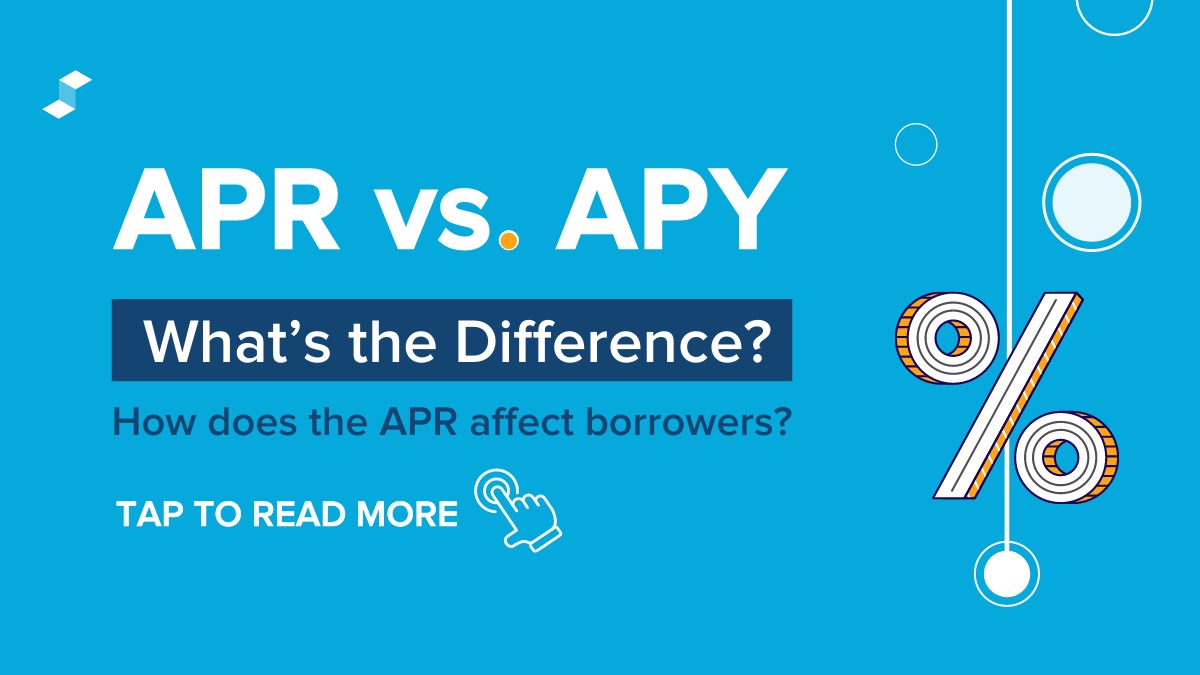Home>Finance>What Is The Difference Between Financial Education And Financial Literacy


Finance
What Is The Difference Between Financial Education And Financial Literacy
Modified: January 5, 2024
Discover the distinction between financial education and financial literacy. Unlock your knowledge about finance and make informed decisions for your future. #Finance
(Many of the links in this article redirect to a specific reviewed product. Your purchase of these products through affiliate links helps to generate commission for LiveWell, at no extra cost. Learn more)
Table of Contents
- Introduction
- Definition of Financial Education
- Definition of Financial Literacy
- Importance of Financial Education
- Importance of Financial Literacy
- The Relationship Between Financial Education and Financial Literacy
- Key Differences Between Financial Education and Financial Literacy
- Challenges in Implementing Financial Education and Improving Financial Literacy
- Resources and Programs for Financial Education
- Strategies to Enhance Financial Literacy
- Conclusion
Introduction
In today’s complex financial landscape, having a solid understanding of personal finance is crucial for individuals to make informed decisions about their money. However, the terms “financial education” and “financial literacy” are often used interchangeably, leading to some confusion about their meanings. While both concepts involve improving financial knowledge and skills, they differ in some key aspects.
Financial education refers to the process of acquiring knowledge and understanding of various financial concepts, principles, and strategies. It involves formal or informal learning experiences that aim to equip individuals with the necessary skills to manage their financial affairs effectively.
On the other hand, financial literacy encompasses an individual’s ability to apply the knowledge and skills gained through financial education in real-world scenarios. It involves practical application, decision-making, and problem-solving skills related to personal finance.
Both financial education and financial literacy play vital roles in empowering individuals to make informed financial decisions, but they have distinct focuses and objectives. In this article, we will explore the differences between financial education and financial literacy, highlighting their importance and the challenges associated with them.
Definition of Financial Education
Financial education encompasses a broad range of learning experiences that aim to improve individuals’ understanding of financial concepts, products, and strategies. It involves formal or informal instruction, guidance, or resources provided to individuals to enhance their financial knowledge and skills.
Financial education is designed to equip individuals with the necessary tools to make informed financial decisions, manage their money effectively, and navigate the complexities of the financial world. It covers various topics such as budgeting, saving, investing, debt management, insurance, retirement planning, and financial goal-setting.
Formal financial education can be obtained through academic institutions, such as schools and universities, where courses and programs are specifically designed to teach financial principles. These educational institutions offer courses in finance, economics, business, accounting, and personal finance.
Informal financial education, on the other hand, refers to learning experiences that occur outside of formal classroom settings. This can include workshops, seminars, webinars, online courses, educational videos, podcasts, articles, books, and other resources that provide individuals with valuable financial knowledge.
The goal of financial education is to empower individuals to make informed financial decisions, develop responsible financial habits, and improve their overall financial well-being. By gaining a comprehensive understanding of financial concepts, individuals can make better choices about spending, saving, investing, and planning for the future.
Financial education is not a one-time event but an ongoing process. As financial markets evolve, new products and strategies emerge, and economic conditions change, individuals must continue to update their financial knowledge and skills to adapt and make sound financial decisions.
Definition of Financial Literacy
Financial literacy refers to the ability to understand and apply financial knowledge and skills to manage personal finances effectively. It encompasses more than just theoretical understanding; it involves practical application and decision-making in real-life financial situations.
Financial literacy goes beyond having knowledge of financial concepts and strategies. It involves the ability to analyze financial information, evaluate financial options, and make informed decisions that align with one’s financial goals and values.
An individual who is financially literate is equipped with the skills to budget, track expenses, save for emergencies, invest wisely, manage debt, understand insurance options, plan for retirement, and protect themselves from financial fraud or scams.
Financial literacy is essential in today’s complex financial world. It empowers individuals to take control of their financial lives and make informed choices that align with their long-term financial well-being. It helps individuals avoid common financial pitfalls, make prudent investment decisions, and build a foundation for a secure financial future.
Financial literacy is not a one-size-fits-all concept. It is influenced by various factors, including an individual’s socioeconomic background, cultural context, education level, and life experiences. Therefore, financial literacy programs and resources should be tailored to different audiences to ensure relevancy and effectiveness.
Improving financial literacy requires ongoing efforts and resources. It involves providing individuals with the necessary knowledge, skills, and tools to understand and navigate the complexities of personal finance successfully. Financial literacy initiatives can be found in various forms, including government programs, non-profit organizations, educational institutions, and financial institutions.
Ultimately, the aim of financial literacy is to empower individuals to make sound financial decisions, achieve their financial goals, and secure their financial future. By developing financial literacy skills, individuals can gain confidence and control over their financial lives, leading to greater financial well-being and peace of mind.
Importance of Financial Education
Financial education is a critical component in empowering individuals to make informed financial decisions and achieve financial well-being. Here are some key reasons why financial education is important:
- Improved Financial Decision-Making: Financial education equips individuals with the knowledge and skills to make informed financial decisions. It helps them understand the consequences of their choices, weigh different options, and select the most suitable financial strategies for their circumstances. This leads to better money management, reduced financial stress, and improved financial outcomes.
- Building Strong Financial Foundations: Financial education helps individuals develop a strong foundation in personal finance. It covers essential topics such as budgeting, saving, and managing debt, which are fundamental to achieving financial stability and independence. By understanding these concepts, individuals can establish good financial habits early on and avoid common financial pitfalls.
- Preparing for Life Transitions: Life is filled with various financial transitions, such as starting a career, getting married, buying a home, having children, and planning for retirement. Financial education equips individuals with the knowledge and skills to navigate these transitions effectively. It helps individuals plan for their long-term financial goals and adapt to changes in their financial situation.
- Financial Empowerment: Financial education empowers individuals to take control of their financial lives. It gives them the confidence and knowledge to engage with financial professionals, ask the right questions, and make independent decisions about their money. By understanding financial concepts and strategies, individuals can protect themselves from financial fraud, scams, and predatory practices.
- Generational Wealth Transfer: Financial education plays a crucial role in ensuring the transfer of wealth across generations. It helps individuals understand the importance of estate planning, setting up trusts, and making wise investment decisions to preserve and grow their wealth. By educating future generations about financial management, individuals can pass on their financial knowledge and values for continued prosperity.
In summary, financial education is essential for individuals to build a solid foundation in personal finance, make informed financial decisions, and achieve their financial goals. It empowers individuals to take control of their financial lives, navigate life transitions, protect themselves from financial pitfalls, and pass on financial knowledge to future generations. By investing in financial education, individuals can enhance their financial well-being and improve their overall quality of life.
Importance of Financial Literacy
Financial literacy is a vital skill that empowers individuals to effectively manage their personal finances, make informed decisions, and achieve their financial goals. Here are some key reasons why financial literacy is important:
- Sound Financial Decision-Making: Financial literacy enables individuals to make sound financial decisions based on their knowledge and understanding of financial concepts. They can evaluate various financial options, assess risks and rewards, and select strategies that align with their goals. This leads to improved financial outcomes and better overall financial well-being.
- Protection Against Financial Exploitation: Individuals with financial literacy are less likely to fall victim to financial scams, fraud, and predatory practices. They possess the skills to identify warning signs, understand the implications of financial products and services, and protect themselves from deceptive practices. Financial literacy empowers individuals to make informed choices and safeguard their financial resources.
- Long-Term Financial Planning: Financial literacy helps individuals engage in long-term financial planning. They can set financial goals, understand the importance of saving and investing, and develop strategies to achieve their objectives. By incorporating financial literacy into their planning process, individuals can make informed decisions about retirement, education funding, homeownership, and other long-term financial considerations.
- Improved Money Management Skills: Financial literacy equips individuals with the skills to manage their money effectively. They can create budgets, track expenses, prioritize spending, and manage debt responsibly. By honing these skills, individuals can develop healthy financial habits, avoid overspending, and build a solid foundation for financial stability and growth.
- Reduced Financial Stress: Financial literacy reduces financial stress by providing individuals with the knowledge and skills to handle financial challenges. It empowers individuals to address debt, build emergency funds, and plan for unexpected expenses. By having the ability to navigate financial hurdles, individuals can experience greater peace of mind and improved overall well-being.
In summary, financial literacy plays a critical role in enabling individuals to make informed financial decisions, protect themselves from financial exploitation, engage in long-term planning, improve money management skills, and reduce financial stress. By investing in financial literacy, individuals can gain control over their financial lives, achieve their financial goals, and enhance their overall financial well-being.
The Relationship Between Financial Education and Financial Literacy
Financial education and financial literacy are closely interconnected, with one building upon the other. While they are distinct concepts, they work in tandem to empower individuals to make informed financial decisions and achieve financial well-being.
Financial education serves as the foundation for financial literacy. It provides individuals with the knowledge and skills necessary to understand various financial concepts and strategies. Through formal or informal learning experiences, individuals gain knowledge about budgeting, saving, investing, debt management, insurance, and other essential financial topics. Financial education equips individuals with the necessary tools to navigate the complexities of personal finance effectively.
On the other hand, financial literacy is the practical application of the knowledge and skills gained through financial education. It involves utilizing financial knowledge to analyze financial situations, make informed decisions, and take appropriate actions. Financial literacy requires individuals to evaluate financial options, understand the implications of financial choices, and effectively manage their financial resources.
While financial education provides the theoretical foundation, financial literacy enhances this knowledge through real-life application. It is the bridge between theory and practice, allowing individuals to employ financial concepts to their specific financial situations. Financial literacy empowers individuals to use their financial knowledge to budget effectively, make investment decisions, plan for retirement, and protect themselves from financial risks.
The relationship between financial education and financial literacy is symbiotic. Financial education is necessary to develop financial literacy skills, and financial literacy is the manifestation of a person’s understanding and application of financial education. Without financial education, individuals may struggle to develop the necessary financial literacy skills to make informed decisions. Conversely, without financial literacy, the knowledge gained from financial education may remain theoretical and ineffective in real-life scenarios.
It is crucial to recognize that financial education is an ongoing process, allowing individuals to continuously deepen their financial knowledge and skills. By continuously learning and adapting, individuals can improve their financial literacy, effectively apply financial concepts, and make sound financial decisions throughout their lives.
In summary, financial education and financial literacy are intricately connected. Financial education provides individuals with the foundation of financial knowledge, while financial literacy encompasses the practical application of that knowledge. Both concepts work synergistically to equip individuals with the necessary skills to navigate personal finance successfully and achieve financial well-being.
Key Differences Between Financial Education and Financial Literacy
While related, financial education and financial literacy are two distinct concepts that contribute to an individual’s financial knowledge and decision-making abilities. Here are key differences between financial education and financial literacy:
- Focus: Financial education primarily focuses on the acquisition of knowledge and understanding of financial concepts. It aims to provide individuals with a comprehensive understanding of financial topics such as budgeting, investing, and debt management. Financial literacy, on the other hand, is the practical application of that knowledge in real-life financial situations. It involves using financial knowledge to make informed decisions, solve financial problems, and achieve financial goals.
- Process vs. Outcome: Financial education is a process that involves learning and acquiring financial knowledge. It typically includes formal or informal instruction, workshops, seminars, online courses, or self-study resources. It is aimed at expanding an individual’s financial knowledge base. Financial literacy, on the other hand, is the outcome of financial education. It is the ability to apply financial knowledge effectively in real-life scenarios, make informed decisions, and navigate personal financial situations.
- Instruction vs. Application: Financial education provides individuals with instructional materials, resources, and learning experiences to enhance their financial knowledge. It focuses on teaching concepts and principles through various mediums. Financial literacy, on the contrary, emphasizes the practical application of financial knowledge to real-life financial situations. It involves the ability to analyze, evaluate, and make informed decisions based on financial knowledge.
- Scope: Financial education covers a broad range of financial topics and concepts, ensuring individuals have a comprehensive understanding of personal finance. It includes areas such as budgeting, saving, investing, insurance, and retirement planning. Financial literacy, on the other hand, is more focused on the practical implementation and application of the knowledge gained through financial education. It involves the ability to use financial knowledge in decision-making, problem-solving, and achieving financial goals.
- Longevity: Financial education is a continuous process that individuals engage in to enhance their financial knowledge throughout their lives. It necessitates staying up-to-date with changing financial trends, products, and regulations. Financial literacy, on the other hand, is a skill that individuals develop over time through the application of financial knowledge. It improves with practice, experience, and ongoing financial decision-making.
Understanding the differences between financial education and financial literacy is crucial in developing comprehensive financial knowledge and decision-making skills. While financial education provides the necessary foundation, financial literacy enhances an individual’s ability to apply that knowledge in real-world financial scenarios. Both concepts are essential for individuals to make informed financial decisions and achieve financial well-being.
Challenges in Implementing Financial Education and Improving Financial Literacy
While financial education and financial literacy are invaluable in promoting financial well-being, there are several challenges that hinder their implementation and improvement. Here are some key challenges:
- Lack of Accessible and Effective Resources: Many individuals face limited access to quality financial education resources and programs. This may be due to a lack of availability, affordability, or awareness of existing resources. Additionally, the effectiveness of financial education materials and programs can vary, making it challenging to find reliable and impactful resources.
- Complexity of Financial Concepts: Financial concepts can be complex and intimidating for individuals who have limited knowledge or experience in financial matters. Understanding intricate financial concepts such as investing, insurance, or taxes can be challenging, leading to a lack of confidence and engagement in financial education initiatives.
- Shortage of Qualified Financial Educators: The shortage of qualified financial educators and trainers poses a significant challenge. Ensuring that educators possess the expertise and ability to effectively teach financial concepts and strategies is crucial. Without qualified educators, the delivery of quality financial education may be compromised.
- Overcoming Behavioral Biases: Individuals are often influenced by behavioral biases that can hinder financial decision-making and learning. Biases such as overconfidence, loss aversion, and present bias can lead to detrimental financial choices. Overcoming these biases and encouraging individuals to adopt rational and informed financial behaviors is a persistent challenge.
- Measuring Impact and Outcomes: Evaluating the impact of financial education programs and the improvement of financial literacy can be challenging. It can be difficult to measure the long-term effectiveness of financial education initiatives and determine the extent to which individuals apply their financial knowledge in real-life situations.
- Addressing Socioeconomic Disparities: Socioeconomic disparities can pose challenges in implementing financial education and improving financial literacy. Individuals from lower-income households may face additional barriers such as limited access to resources, financial instability, and a lack of support systems. Addressing these disparities and providing targeted financial education for disadvantaged populations is crucial for equitable access to financial knowledge.
Despite these challenges, efforts are being made to overcome them. Governments, educational institutions, nonprofits, and financial institutions are working to develop accessible and effective financial education resources, train qualified educators, and employ innovative approaches to enhance financial literacy. Collaboration between different stakeholders is key in addressing these challenges and promoting broader financial education and literacy initiatives.
Continued investment in research, development, and evaluation of financial education programs can help identify best practices and strategies for improving financial literacy. Tailoring financial education to meet the specific needs of different populations, considering cultural and socioeconomic factors, can also contribute to better outcomes.
By addressing these challenges head-on, society can create a more financially knowledgeable and empowered population, leading to improved financial well-being for individuals and communities as a whole.
Resources and Programs for Financial Education
Various resources and programs are available to promote financial education and improve financial literacy among individuals. These initiatives aim to provide accessible and practical tools to enhance financial knowledge and decision-making skills. Here are some common resources and programs for financial education:
- Online Courses and Webinars: Many organizations and educational institutions offer online courses and webinars on personal finance topics. These resources provide individuals with the flexibility to learn at their own pace and cover a wide range of financial concepts, such as budgeting, investing, debt management, and retirement planning.
- Government Initiatives: Governments around the world have implemented financial education programs to improve financial literacy. These initiatives may include educational campaigns, online resources, and partnerships with schools and community organizations. The aim is to reach a wide audience and provide foundational financial knowledge to individuals of all ages.
- Nonprofit Organizations: Nonprofit organizations focused on financial education play a crucial role in providing resources and programs to improve financial literacy. These organizations may offer workshops, counseling services, educational materials, and tools to help individuals with budgeting, debt management, and other financial aspects.
- Financial Institutions: Banks, credit unions, and other financial institutions often offer financial education programs and resources to their customers. These initiatives may include online educational content, workshops, and one-on-one financial counseling sessions. It is in the best interest of financial institutions to promote financial literacy as it helps individuals make informed decisions about their financial products and services.
- School-Based Programs: Many schools recognize the importance of financial education and integrate it into their curriculum. Financial literacy programs within schools aim to teach students about budgeting, saving, investing, and other essential financial topics. These programs may include classroom instruction, interactive activities, and real-world simulations to provide practical financial skills from an early age.
- Community Workshops and Seminars: Community-based workshops and seminars are often organized by local organizations, libraries, and community centers. These events provide individuals with the opportunity to learn and discuss financial topics with experts, ask questions, and engage in interactive activities. They promote peer learning and community support in improving financial literacy.
Additionally, individuals can access a wide range of financial literacy resources, including books, podcasts, videos, and online articles, to enhance their financial knowledge. Many reputable financial websites and blogs offer educational content and tools to help individuals make informed financial decisions.
It is important for individuals to access resources and programs from reliable sources that offer up-to-date and accurate information. Evaluating the credibility, relevance, and suitability of the resources is crucial to ensure the information aligns with individual needs and goals.
By taking advantage of these resources and programs, individuals can enhance their financial knowledge, improve their decision-making skills, and work towards achieving their financial goals.
Strategies to Enhance Financial Literacy
Improving financial literacy is a lifelong journey that requires consistent effort and commitment. Here are some effective strategies to enhance financial literacy:
- Educate Yourself: Take the initiative to educate yourself about personal finance. Read books, articles, and blogs on various financial topics. Follow reputable financial websites and subscribe to newsletters to stay updated on the latest trends and developments in the financial world.
- Take Advantage of Online Resources: Explore the plethora of online resources available for financial education. Enroll in online courses or webinars that cover topics of interest. Watch educational videos and listen to podcasts focused on personal finance. Utilize online calculators and tools to better understand your budget, debt, and savings goals.
- Create a Financial Plan: Develop a financial plan that aligns with your goals. Outline your short-term and long-term objectives, and establish a budget to allocate your income wisely. Consider seeking professional advice to help create a solid financial plan tailored to your specific needs and circumstances.
- Track Your Spending: Monitor your spending habits and track your expenses to gain a clear understanding of how your money is being utilized. This awareness allows you to identify areas where you can cut back on unnecessary expenses and allocate funds towards savings and investments.
- Invest Wisely: Learn about different investment options and understand the associated risks and potential returns. Diversify your investment portfolio to manage risk effectively. Consider consulting with a financial advisor to assist you in making informed investment decisions.
- Manage Your Debt: Understand the impact of debt on your financial well-being. Learn about different types of debt, their interest rates, and repayment terms. Develop a plan to manage and reduce your debt strategically. Prioritize paying off high-interest debt first to save on interest payments.
- Stay Informed: Regularly keep abreast of financial news and updates. Being aware of changes in the economy, interest rates, and market trends can help you make better financial decisions. Follow credible financial news sources and consider subscribing to financial magazines or newsletters.
- Engage in Peer Learning: Network with others who have similar financial goals and interests. Engage in discussions, workshops, or study groups focused on personal finance. Sharing experiences, insights, and strategies with peers can deepen your understanding and provide valuable perspectives.
- Teach Others: Share your financial knowledge with others. Educating family members, friends, or colleagues about personal finance can reinforce your own understanding and stimulate valuable discussions. By teaching others, you also contribute to building a financially literate community.
- Continuously Update Your Knowledge: Keep learning and adapting as financial landscapes evolve. Regularly revisit financial education resources, attend seminars or webinars, and immerse yourself in ongoing learning opportunities. Continuous learning ensures that your financial knowledge remains relevant and up to date.
Remember, enhancing financial literacy is a journey that requires persistence and commitment. By implementing these strategies, you can empower yourself to make informed financial decisions, achieve your financial goals, and secure a better financial future.
Conclusion
Financial education and financial literacy are key components in empowering individuals to make informed financial decisions, achieve financial goals, and improve their overall financial well-being. While distinct concepts, they work in tandem to build a strong foundation of financial knowledge and practical application.
Financial education provides individuals with the necessary knowledge and skills to navigate complex financial landscapes. It equips individuals with a comprehensive understanding of various financial concepts, principles, and strategies. Financial literacy, on the other hand, is the practical application of financial knowledge in real-life situations. It involves using financial knowledge to make informed decisions, solve financial problems, and achieve desired financial outcomes.
Ensuring easy access to reliable resources and programs for financial education is crucial. Governments, nonprofit organizations, financial institutions, and educational institutions play a pivotal role in providing accessible and effective financial education initiatives. Online courses, government programs, nonprofit workshops, school-based initiatives, and resources from financial institutions are just a few examples of the available educational avenues.
Despite the challenges faced in implementing financial education and improving financial literacy, efforts are being made to overcome them. Addressing barriers such as limited access to resources, complex financial concepts, shortage of qualified educators, behavioral biases, measurement of impact, and socio-economic disparities is essential in promoting equitable financial literacy for all.
Individuals can take proactive steps to enhance their financial literacy by educating themselves, utilizing online resources, creating financial plans, tracking their spending, diversifying their investments, managing their debt, staying informed, engaging in peer learning, teaching others, and continuously updating their financial knowledge.
By investing in financial education and enhancing financial literacy, individuals can make informed financial decisions, mitigate risks, achieve financial goals, and ultimately improve their overall financial well-being. Empowered with financial knowledge and skills, individuals can navigate the complexities of the financial world with confidence and create a more secure and prosperous future for themselves and their families.














